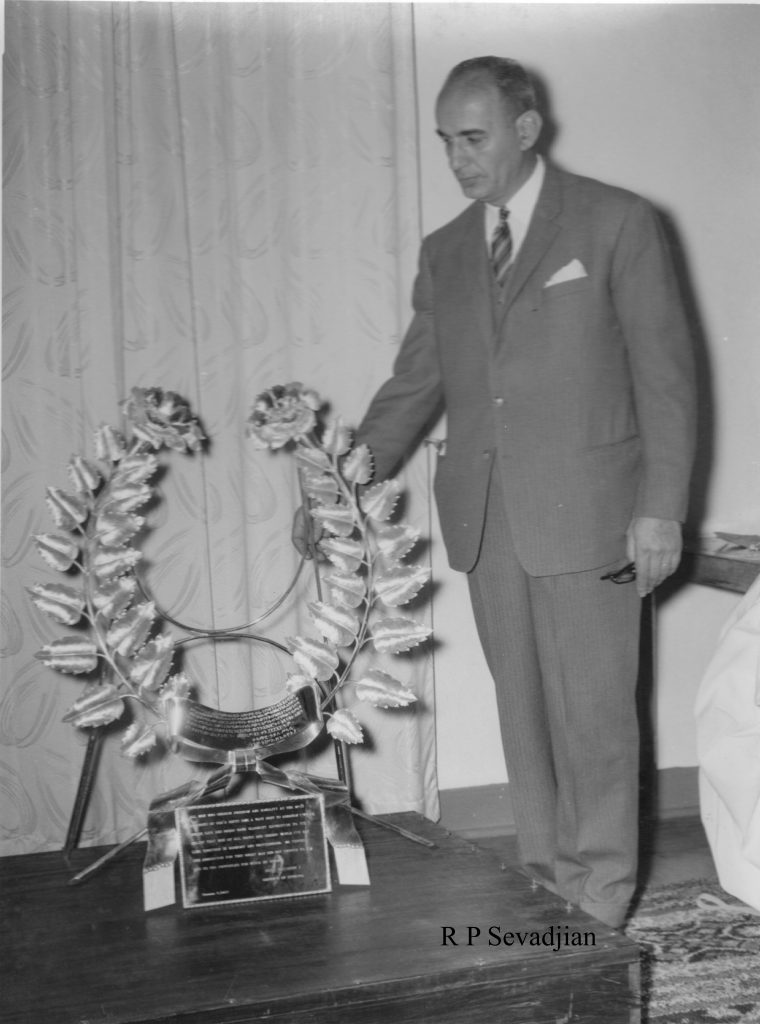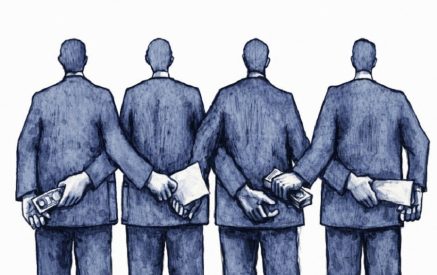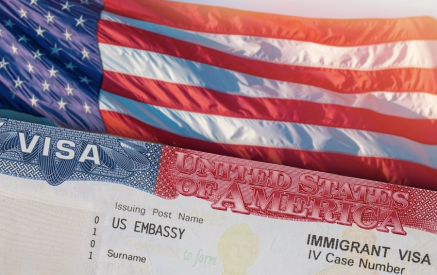The Armenian Weekly. The Museum Resource Center in Washington D.C. hosted a reception on June 15 in honor of my father, Bedros Sevadjian, jeweler and silversmith “By Appointment to His Imperial Majesty Haile Selassie I, Emperor of Ethiopia” (see “Jeweler to an Emperor: Bedros A. Sevadjian (1918-1977)“).
There, at long last, we saw the beautiful silver wreath he had made for the Emperor in 1963. In October of that year, during a state visit to the United States, Haile Selassie I laid the unique silver wreath at the Lincoln Memorial, on the National Mall in Washington D.C., as a tribute to abolitionist U.S. president Abraham Lincoln.
A year ago, I was introduced to retired Marines Nanci and Eric Visser, who live in Alexandria, Va., outside Washington D.C. They had been posted to Ethiopia in the mid-’70s, and during that time they had formed a deep friendship with my father. The Vissers and I instantly formed a great rapport and bond.
Needless to say, my father was the subject of many conversations between us. In discussions about my father’s work, I mentioned the wreath that was somewhere in the possession of the U.S. government. Nanci immediately volunteered to look for it. Just a few days later, she confirmed that Eric had found it: It was stored at the Museum Resource Center.
Not only that, but Museum Resource Center Director Bob Sonderman and Museum Curator of the National Mall and Memorial Parks Laura Andersen had immediately invited Nanci and Eric to visit and to see the wreath. Apparently, the silver was a bit tarnished and some of the leaves were bent, but otherwise it was fine. To my surprise and delight, Bob and Laura undertook to restore the wreath so that it could be readied for display in the future.
Of course, I very much wanted to see it for myself, as did my brother and sisters when I told them about it. I suggested we might all travel to Washington to see it, and then decided it would be great to hold a small reception so that others who were interested could also see it.
The project snowballed, and we eventually held our reception. His Imperial Highness Prince Ermias Sahle Selassie Haile Selassie, grandson of the Emperor, honored us with his presence. Friends came from Washington, New York, New Jersey, and Montreal; my cousin Ada Soaper flew in from Los Angeles, my brother Phillip from Hawaii, my sisters Jeanine and Anaïs and I from the U.K.
New friends and old friends came together to admire a remarkable work of art that is so important historically—a symbol of the longstanding ties between the United States and Ethiopia, as well as the ties that bind Ethiopians and the Armenians who were once an important part of their society.

Lij Abiye Abebe, Ada Soaper, H.I.H. Prince Ermias, Jeanine Gulvanessian, R.P. Sevadjian, Phillip Sevadjian, Anaïs Cooper, and Solomon Kibriye (Photo: Matt Andrea)
The wreath itself exceeded all expectation. For although I had seen old black and white photos of it, I had no concept of the sheer size and beauty of it. Fully 580 Maria Theresa thalers were melted down to make it. It is about two and a half feet tall and weighs almost 14 kilograms. The wreath is in the form of two long stems of Ethiopian Tsegereda roses (Rosa Abyssinica), tied together at the base in a bow. A plaque bears an inscription in English and Amharic. In English, it reads as follows:
All men who cherish freedom and equality as the most precious of
God’s gifts owe a vast debt to Abraham Lincoln, whose life and deeds
Gave eloquent expression to his belief that men of all races and creeds
Would one day live together in harmony and brotherhood. We express
Our admiration for this great man and pay tribute to him and to the
Principles for which he stood.
Haile Selassie I
Emperor of Ethiopia
Gay Vitzke, superintendent of the National Mall and Memorial Parks, Bob Sonderman, and Laura Andersen made it possible for us to host the special viewing of this unique piece of history.
The wreath had been displayed for some time at the Lincoln Memorial after the Emperor’s visit, but eventually it was removed for safekeeping. It then disappeared from public consciousness as history took its course. The Kennedy assassination, the tumult of the Civil Rights Movement, and the Ethiopian Revolution of 1974 intervened, and the wreath became a memory, its image surfacing only in old newsreels.
This wonderful artifact has now been preserved and will be kept in top condition for years to come. We hope it will be displayed from time to time. It is an example of how different communities can come together to share a beautiful legacy.




























































